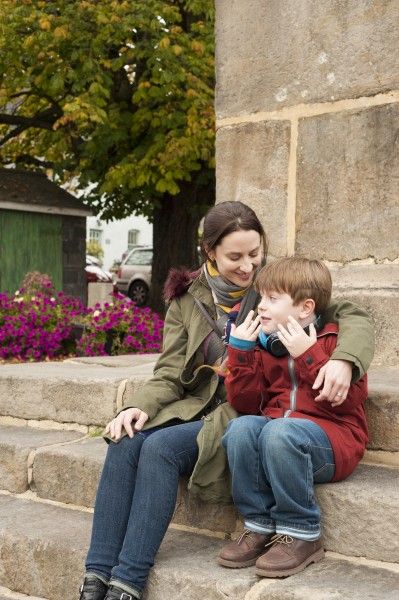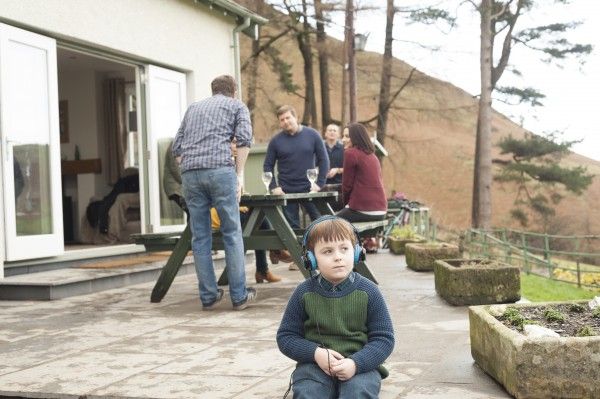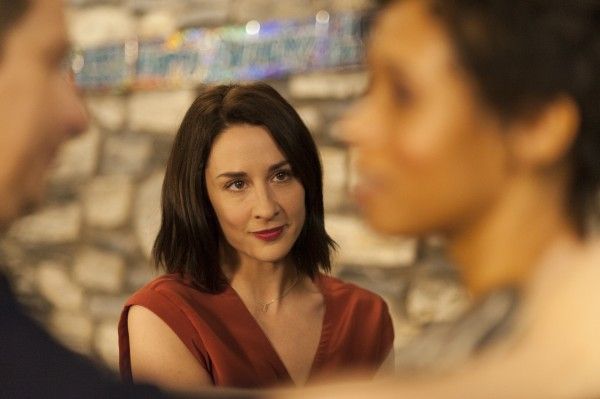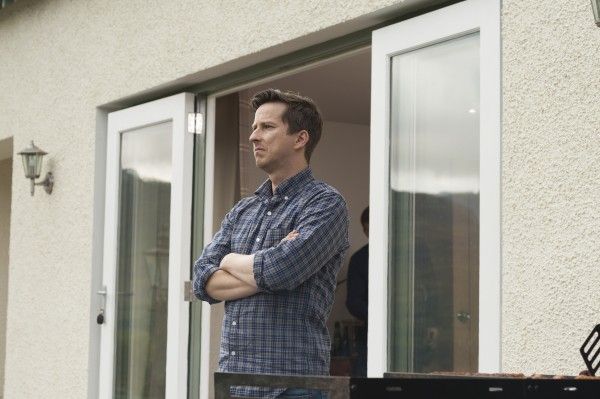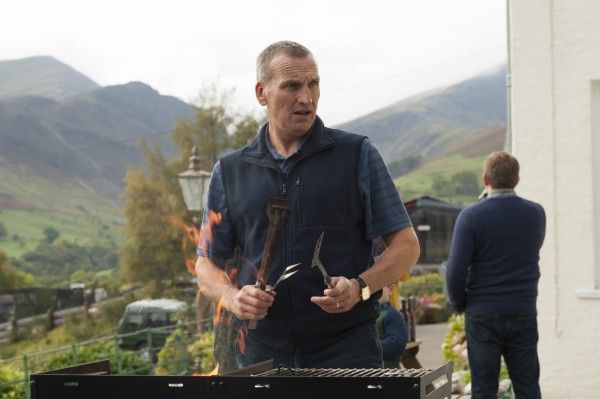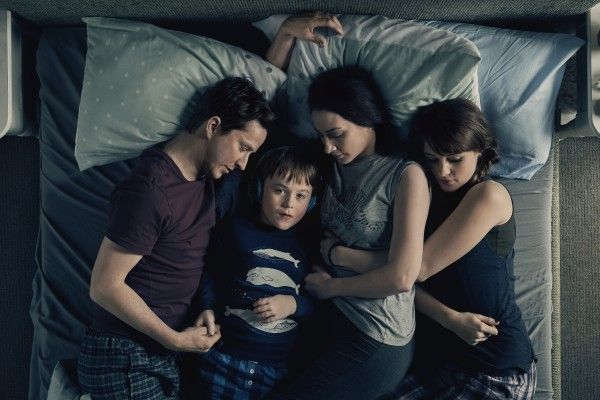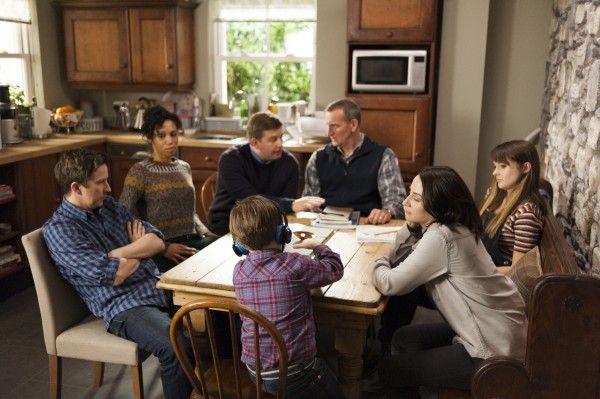For a little while, there was a lot of talk about the rise of slow, meditative television series. Several of those dramas all happened to be nestled on SundanceTV, including Rectify and The Returned. And though the TV landscape is becoming increasingly populated with whiz-bang series full of innumerable twists and mysteries, there’s something still to be said about Sundance, which continues to be a purveyor of thoughtful dramas. The latest is The A Word, which is a British import (like many of the channel’s great programming, including the recent series The Last Panthers) and is based on an Israeli series, Yellow Peppers. The 6-episode A Word focuses on the Hughes family, who live in rural Northern England, and have just found out that their 5-year-old Joe (Max Vento) is on the Autism spectrum.
What makes The A Word so gripping and often heartbreaking is the way it truthfully moves through the stages of denial and confusion faced by Joe’s family. His parents, Alison (Morven Christie) and Paul (Lee Ingleby), know that Joe is different from the other children — he isolates himself, doesn't connect with anyone, and has an encyclopedic knowledge of music, which he’s also obsessive over — but they don’t think there’s anything about him that needs labeling. Joe’s outspoken and often tactless grandfather Maurice (Christopher Eccleston) struggles with the same denial, while Alison’s 16-year old daughter from a previous relationship, Rebecca (Molly Wright), loves her brother, but feels completely ignored within the family. Alison’s brother Eddie (Greg McHugh) and his wife Nicola (Vinette Robinson) live next door and want to be supportive, but tension from an affair Nicola had (that they all know about) keeps them at an emotional distance.
Though Joe’s diagnosis is the catalyst for the series, The A Word is more about the dysfunction of his family rather than anything he suffers from. A therapist tells the Hughes that Joe struggles to communicate, but frankly, so do they. They bicker and hide things from one another, use humor as a defense, and bury their feelings. Alison, in particular, struggles with her desire for control and perfection, projecting an immense amount of anxiety onto Joe. In the third episode, her family also confront her about her bullying personality.
And yet, her desire to fight for Joe and do everything she can for him comes from the right place, even if her actions don’t always reflect that. It’s The A Word’s honesty about families, family dynamics, and the nuances of close relationships (that is never saccharine) that makes it stand out as an exceptional drama. Peter Bowker’s script doesn’t let any of the family members off the hook, either, which at first makes them hard to like, but not (for better or worse) hard to relate to. It also explores the realities of Autism, and how difficult it can be to pin down.
Though the entire cast is wonderful, young Max Vento is a stand-out as Joe, imbuing him with a detached and dreamy quality. His meltdowns are often wordless (he may throw a book or his cereal, but he rarely yells) and he never makes eye contact with those around him. As the children on the playground or at after-school sports run around him or don’t engage with him (because he doesn’t seem interested), Joe seems placid in his own world, singing along with the music being piped through is bright blue headphones, as he swings slowly, gazing out at nothing in particular.
The A Word isn’t a series that has any central mystery to be solved, or a plot device that defines its trajectory. It’s a character study, and a portrait of a family that is presented in way that makes it easy to get emotionally invested, even as we may want to keep the Hughes’ struggles at arms length to start. Paul and Alison don’t know what the plan is for Joe, whether he should be in school or not, or even how to interact with him at home in the ways that the therapists suggest. Their lives have changed, and yet, they rely only on their family, as they want to keep everything with Joe a secret from the small community. There’s an all-too-familiar pride there, and Paul calls Alison out on the guilt she feels for thinking that there’s anything to be ashamed of in the first place.
Though the landscape is dreary and the decisions the family grapples with are difficult, the series isn’t dour. There’s a lot of wit and humor in the dialogue, and very real conversations about how to pay for care, as well as the decisions to potentially compromise one’s dreams to support a family. These things are hard, but are dealt with in compassionate ways. Small triumphs count for so much, and side stories about Maurice’s unexpected love life, Eddie running the family’s brewery, and Nicola’s work as a nurse create some relief from the family’s uncertainty caring for Joe.
The A Word doesn’t explain everything about the Hughes at once — this is a show that requires an investment, though it’s not hard to give. Though certain elements can be frustrating, it’s also meant to be. It's thoughtful, meditative TV. As the Hughes figure themselves out, making a lot of wrong decisions along the way, it also challenges viewers to consider our own lives and choices, and how we might react to these same situations. The A Word’s world is small and deeply knowable, even to the point of discomfort. Yet it’s also warm, deeply affecting, and never loses its charm.
Rating: ★★★★ Very Good -- Damn Fine TV
The A Word premieres Wednesday, July 13th at 10 p.m. on SundanceTV


